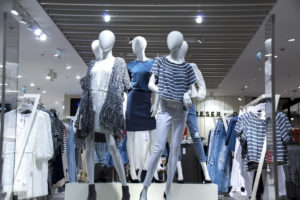
There are many ways for store owners to reduce the risk of employee theft and fraud. Background checks supplement interviews and screening questions on a job application. Manager training to know the signs and indicators that a worker may be engaging in theft activity of some sort is another preventative step. Electronic Article Surveillance systems and tags are helpful in deterring shoplifters and dishonest employees. Certainly Closed Circuit Television (CCTV), Public View monitors and mandatory package checks before leaving work all play a part in preventing internal criminal activity. One of the best tools an employer can use to reduce the chance they will even hire a thief in the first place is the use of pre-employment drug screening. The prospective employee would go to the lab, fill the cup and labs would send off the sample to have it checked for illegal substances. That has been the most common of the drug tests and many employers have relied on it to help them keep their stores profitable and safe.
Is this still an effective method for owners to use? With states loosening their own laws surrounding marijuana use it is a mixed bag. Not all states are legalizing it and it is still a federal crime to use, grow, distribute or possess it. So if you are in a state where it is still a crime to use marijuana and an applicant applies to a job with your company but he/she comes from a state where it has been “legalized” do you have them take a pre-employment drug test? What happens if they take the test and results show they use marijuana, do you not hire them even though it was “legal” where they came from? This can pose a dilemma for store owners. If you do hire them, do you put yourself at risk for discriminating against someone from your own state who failed and did not get hired based on that result?
Leaving the marijuana out of the equation for the moment, there is still room for drug testing in the workplace, both pre-screening and random drug testing of employees. Drug screening can identify other illegal substances in addition to marijuana. According to thebalancecareers.com, “A typical drug test for employment purposes screens for drugs including amphetamines, cocaine, marijuana, opiates, nicotine, and alcohol.” While you may decide to overlook positive results for marijuana you can still turn down applicants for the other drugs. States may be legalizing marijuana but the debates about the safety and effects of the drug on behavior remain a concern. Just because it is legal does not mean you necessarily want someone who uses this drug or any other drug working for your business. Pre-employment drug screening is still an effective tool in your efforts to combat theft and safety concerns.
Why test for drugs in the first place? By testing and screening out applicants who test positive you significantly reduce the risk of hiring someone who very well may steal from your store. It may be cash or merchandise but they have a habit to feed and they still have bills to pay and they are not going to feed that habit on a retail job. Working in the store gives them access to money and merchandise that will provide the resources for their addiction. Another reason to test is to keep your store safe. Someone who is illegally using drugs or coming to work under the influence of drugs or alcohol can be a cause of an accident or can be the victim of an injury in the workplace incurred while under the influence. Whether they cause the accident or are the victim of an accident, you can end up paying for it. There is also the safety of your other employees to consider. Someone under the influence of the wrong drugs can be unstable and volatile. What is it that is going to trigger a violent action on their part? Giving them a direction or task they don’t want to do? How about a customer that says something that sets off your employee. There is no place for violence or theft in the workplace and pre-employment drug screening can help prevent both from happening.



 Have you ever noticed how we all anticipate a New Year will bring new and exciting things into our lives (or businesses) but after the first month we often realize that nothing is new or improved or better? In fact, we may be disappointed as the year progresses that problems we hoped would be resolved (read, “magically disappear”) are still there. We make resolutions at the beginning of the year that are meant to help “improve” or “fix” something we know is an opportunity but then we slide back into our routines and those “problems” don’t get any better.
Have you ever noticed how we all anticipate a New Year will bring new and exciting things into our lives (or businesses) but after the first month we often realize that nothing is new or improved or better? In fact, we may be disappointed as the year progresses that problems we hoped would be resolved (read, “magically disappear”) are still there. We make resolutions at the beginning of the year that are meant to help “improve” or “fix” something we know is an opportunity but then we slide back into our routines and those “problems” don’t get any better. Hiring employees is hard enough for retail owners without the pressures of hiring seasonal staff during the holidays as many stores are now doing. Under normal circumstances, managers and owners of retail businesses are stretched thin keeping a store operating efficiently. When turnover occurs more time is taken up as those managers are forced to focus their energies on filling holes in the weekly schedule. Job ads are posted and often paper applications are handed out as interested persons come in to respond to the ad or a “Help Wanted” sign posted in a window. Then there is the security risk that is involved in the hiring of new employees whether they are seasonal or to be a regular member of a team. A new hire carries an unknown quality and there is always the off chance that with even the best interview a criminal can slip between the cracks, the proverbial wolf in sheep’s clothing.
Hiring employees is hard enough for retail owners without the pressures of hiring seasonal staff during the holidays as many stores are now doing. Under normal circumstances, managers and owners of retail businesses are stretched thin keeping a store operating efficiently. When turnover occurs more time is taken up as those managers are forced to focus their energies on filling holes in the weekly schedule. Job ads are posted and often paper applications are handed out as interested persons come in to respond to the ad or a “Help Wanted” sign posted in a window. Then there is the security risk that is involved in the hiring of new employees whether they are seasonal or to be a regular member of a team. A new hire carries an unknown quality and there is always the off chance that with even the best interview a criminal can slip between the cracks, the proverbial wolf in sheep’s clothing. As of September 2018, the national unemployment rate is down to 3.7% according to ncls.org. As a retail store owner thinks about what this means for you in terms of trying to hire to fill job openings including seasonal hiring for the holidays. With an employment rate of 96.3% that leaves a sparse workforce as a hiring pool. I have read articles by those who think that with a dwindling number of people seeking work employers are going to have to forego pre-employment background checks. They seem to believe that the need to hire outweighs any baggage the job candidates bring with them.
As of September 2018, the national unemployment rate is down to 3.7% according to ncls.org. As a retail store owner thinks about what this means for you in terms of trying to hire to fill job openings including seasonal hiring for the holidays. With an employment rate of 96.3% that leaves a sparse workforce as a hiring pool. I have read articles by those who think that with a dwindling number of people seeking work employers are going to have to forego pre-employment background checks. They seem to believe that the need to hire outweighs any baggage the job candidates bring with them. 